How to Copy and Backup Files without Admin Rights
The "You'll need to provide administrator permission to copy this file/folder" error is a common issue in Windows 10/8/7. Many ordinary users are left puzzled when this message appears, unsure of what's happening with their computer or device.

Effective methods are available here to help:
| Workable Solutions | Step-by-step Troubleshooting |
|---|---|
| Method 1. Copy Files Without Admin Rights in 3 steps | You can copy or backup files and folders without needing administrator permission by using Qiling Backup...Full steps |
| Method 2. Fix Error and Copy Files | To fix the "Need administrator permission to copy this file/folder" error and copy files or folders, follow these three steps: First, click on the Start menu and type 'cmd' in the search bar to open the Command Prompt. Then, type 'takeown /f "C:\path\to\file\or\folder"' (replace 'C:\path\to\file\or\folder' with the actual path to the file or folder you want to copy) and press Enter to give yourself ownership of the file or folder. Finally, you can copy the file or folder as needed without encountering the administrator permission error.Full steps |
It sounds like you're experiencing a permissions issue on your Windows 10 system. To resolve this, try running the Command Prompt as an administrator.
To resolve the 'You'll need to provide administrator permission to copy this file/folder' error on Windows 10, ensure that you're logged in as an administrator or have administrator rights. If you're using a standard user account, you can right-click on the file/folder, select 'Properties', and then click on the 'Security' tab. From there, click on 'Edit' and add your user account to the list of allowed users.
You're trying to copy files from an external hard drive to your computer, but it keeps asking for admin rights. You've tried reconnecting the drive, but the issue persists. To backup and copy files without admin rights, you can try using a USB drive or a different computer. If you're still having issues, you may want to check the external hard drive's compatibility with your computer. As for the admin rights issue, it's possible to fix it yourself by checking the drive's permissions and ensuring it's not set to read-only. You can also try running a system file checker or updating your Windows version.
Method 1. Copy Files Without Admin Rights
You can try using the built-in Windows utility called "Take Ownership" or a third-party software like CCleaner, Unlocker or TakeOwnership to bypass the permission issue. Alternatively, you can also use the command line to take ownership of a file or folder using the ICACLS command. If you are using a Mac, you can try using the Terminal command "chown" to change the ownership of a file or folder.
To quickly copy and backup your files, install and use the best Windows backup and recovery software, which can be done in just three steps. This software allows you to easily backup your files to a target storage device.
Step 1: Open Qiling Backup and select "File" as the backup mode.
As time passes, you accumulate a large amount of vital data, including documents, pictures, music, and videos, which are all valuable assets. To protect them from unexpected data loss, it's a good habit to regularly back up your files, and File Backup is an excellent choice for this purpose.
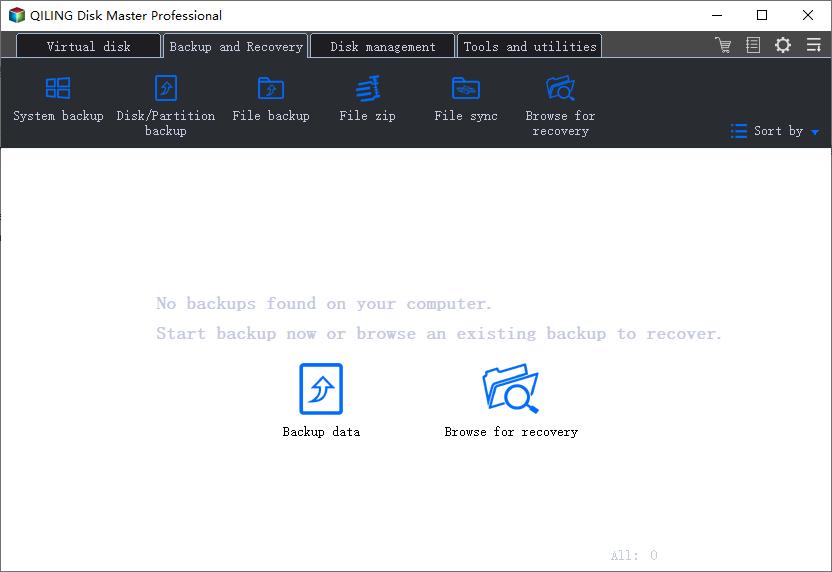
Step 2: Select the files that you want to back up.
To add a backup option, click on the top left corner and select "User Defined". This allows you to browse and add specific file types from your computer or external storage device for backup.
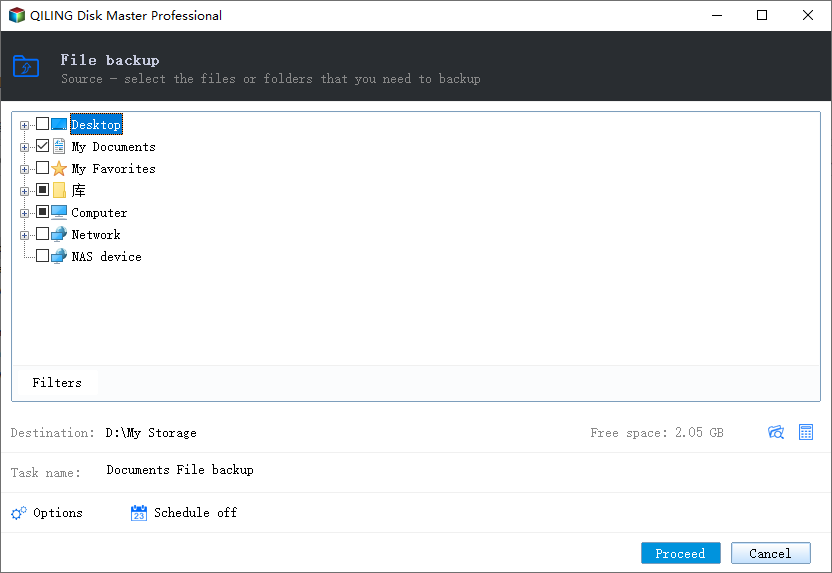
Step 3: Select a destination to save your backup file.
You should keep the backup file in a separate storage device or drive to avoid the risk of it getting corrupted or destroyed.
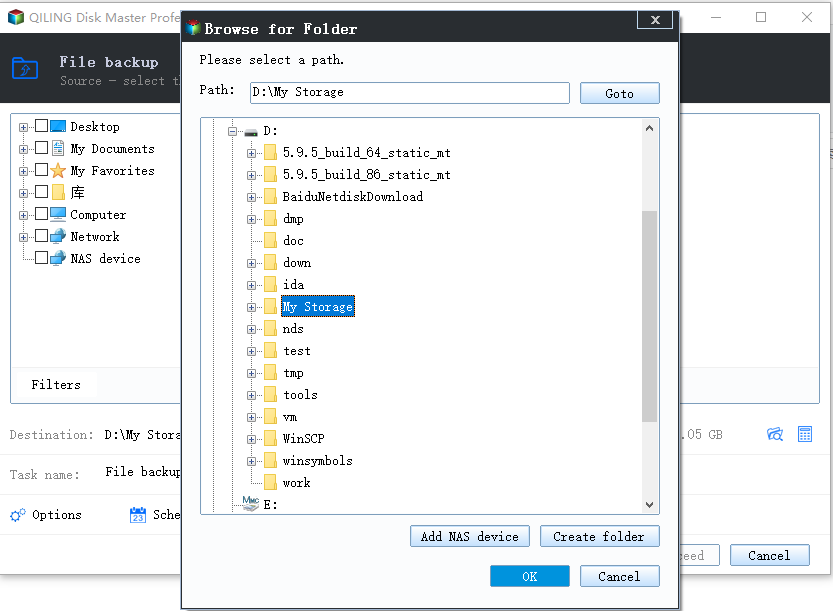
Step 4: Click "Proceed" to execute your operation.
Once the backup process is initiated, you'll need to wait for it to complete. Once it's done, all the wanted files will be backed up and copied to the target storage device.
If you need to use the backed up files, you can use the Browse to Recover feature in Qiling Backup to recover the file image to a secure location and make use of them again.
Method 2. Fix "Need administrator permission to copy this file/folder" error and copy files
When asked to provide administrator permission or admin rights, you'll need to take ownership of the folder or file to access or open it. To do this, you can follow these tips:
Step 1. Take the Ownership of a File or Folder
1. To view the properties of a file or folder in Windows, open "Windows Explorer", navigate to the desired file or folder, right-click on it, and select "Properties" from the context menu.
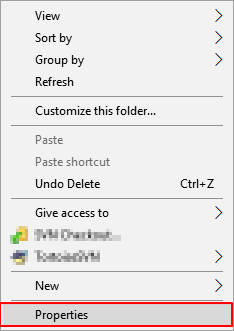
2. Go to Security and click "Advanced", go to "Owner" tab.
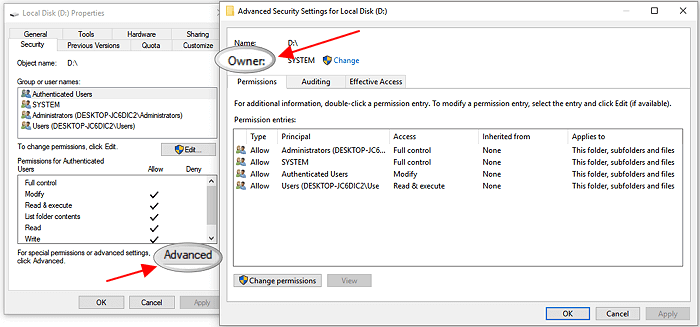
3. To change the owner to a user or group that is not listed, click "Change" > "Other user and groups" and type the name of the user or group in "Enter the object name to select", then click "Check Names" > "OK".
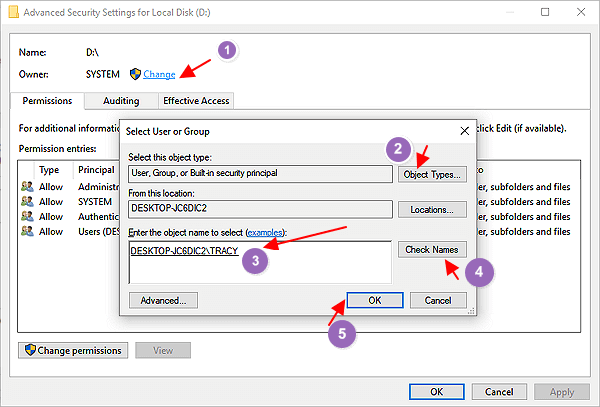
4. To change the user or group listed, you can simply type the new user or group name in the field provided. For example, if you want to change the user from "John" to "Jane", you can type "Jane" in the field and press enter.
To change the owner, click on the "Change" button in the box and make the necessary changes.
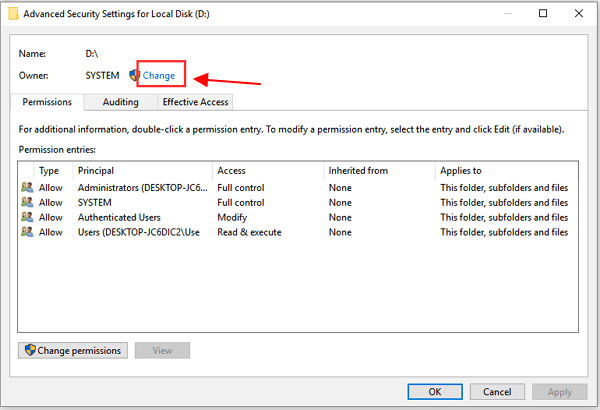
5. If you want to change the owner of all sub containers and objects within the tree, select the "Replace owner on subcontainers and objects" box.
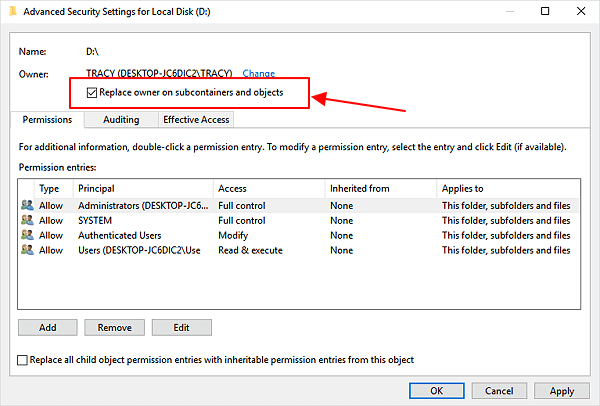
Step 2. Turn off UAC or User Account Control
1. Right-click on the Windows icon, select "Search", type "Control Panel", and then click on it.
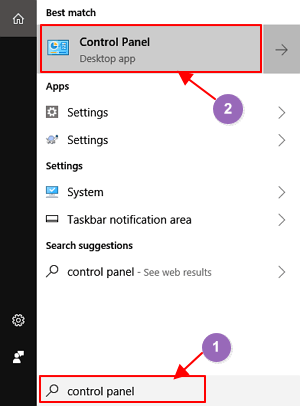
2. To change the view to large icons, select "Large icons" from the "View" options on the right panel.
3. To change User Account Control settings, locate the "User Account" option and click on it. Then, click on "Change User Accounts Control Settings".
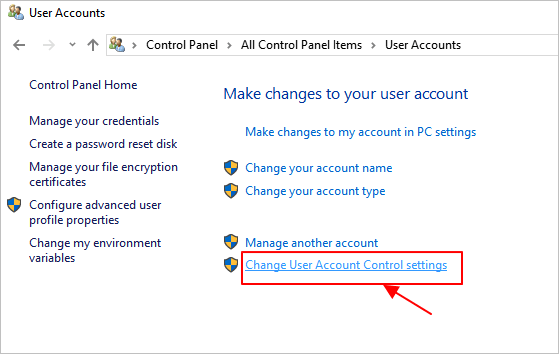
4. Change to "Never notify" and click "OK".
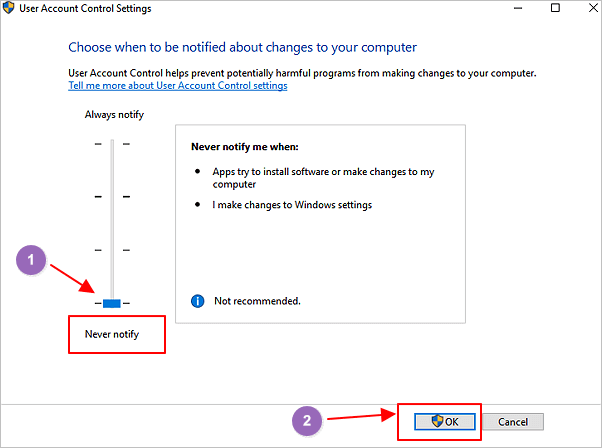
5. Once you complete the process, change the slider to "Notify me only when programs try to make changes to my computer" and click "OK" to keep all changes.
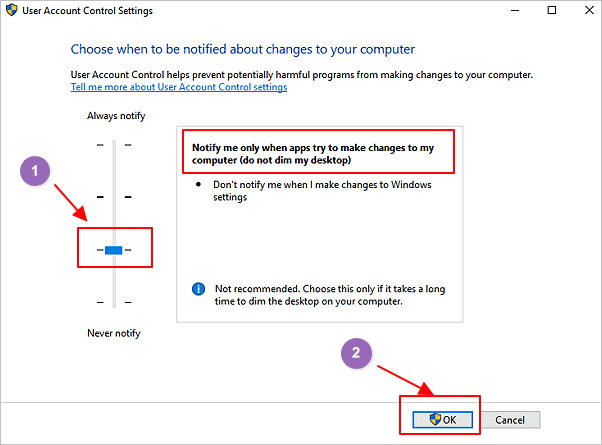
Step 3. Enable the Built-in Administrator Account
1. Right-click on the Windows icon, select "Search", type "Command Prompt", and right-click on the result, selecting "Run as administrator".
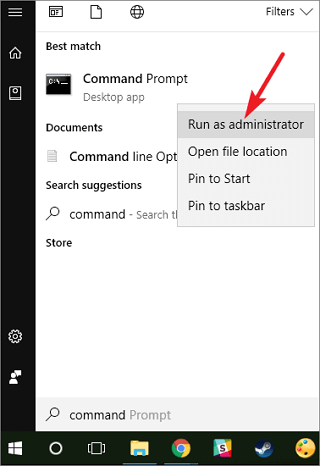
2. Click "Yes" to allow Command Prompt run on your PC.
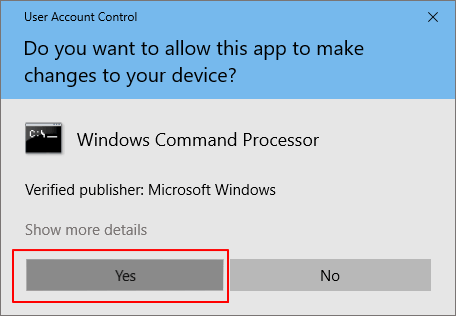
3. To run the command "net user administrator /active:yes" in Command Prompt, simply type it in and press Enter. This command will activate the built-in "Administrator" user account, which is disabled by default in Windows.
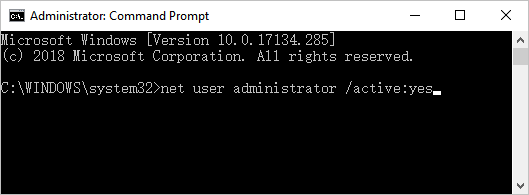
I'm happy to help! However, I don't see a previous response to rewrite.
Final Word
If you're an urgent user who needs to copy files to other storage devices but Windows doesn't allow it without admin rights, don't worry.
To quickly and thoroughly resolve this error, you can follow either Method 1 or Method 2 with ease.
Related Articles
- Top 3 Best Cloning Software for HDD and SSD
- How to Backup SSD to HDD Automatically
- How to Clone Android SD Card to A Larger One
- How to Copy HP Recovery Partition to New Hard Drive
- How to Clone Android SD Card to A Larger One
- [Free] How to Make a Full Backup of Windows 10/8/7